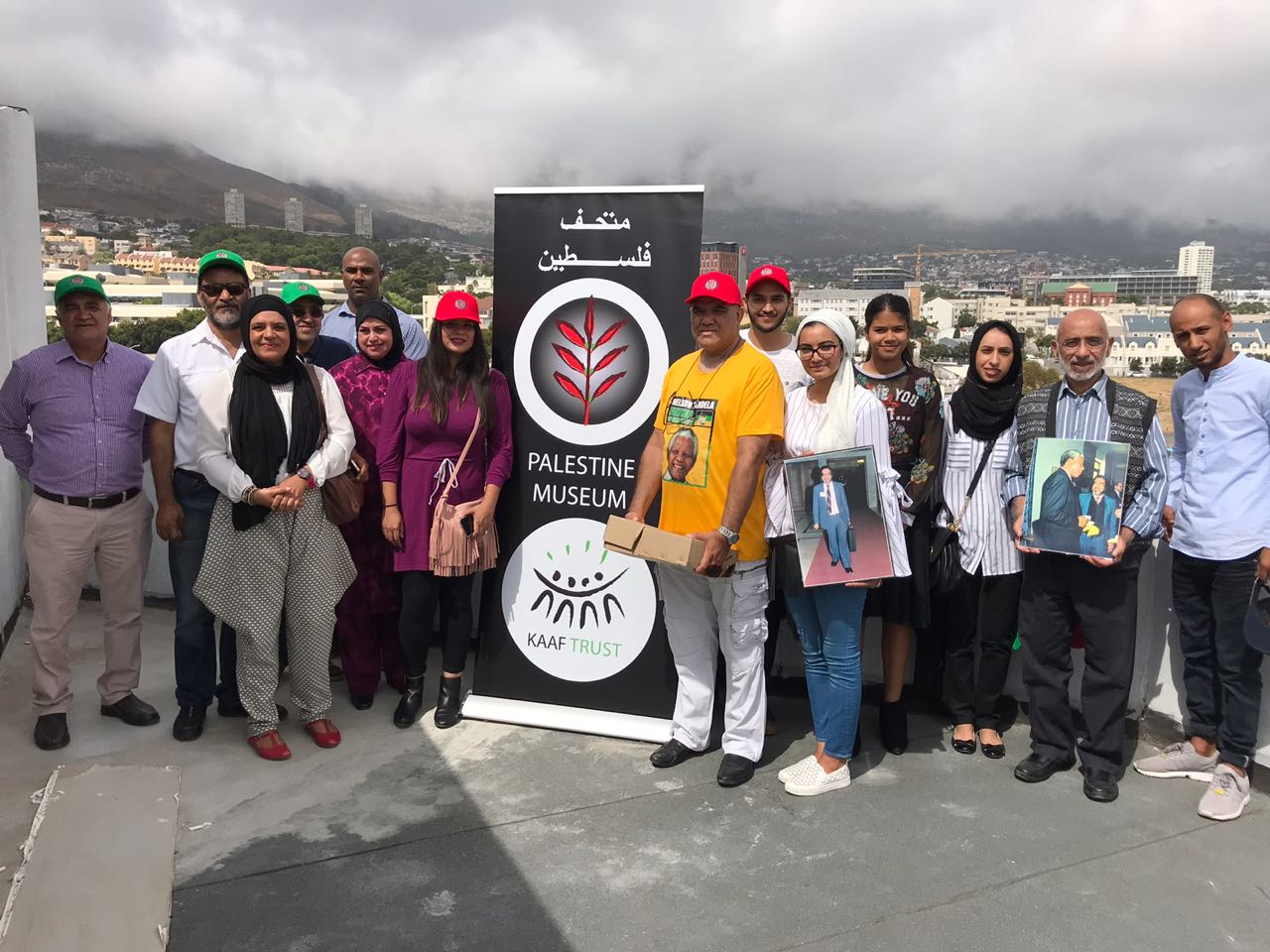By Tasneem Adams
The late Judge Essa Moosa’s personal library and historical legal documents used in the apartheid treason trials have found a new home at the Al Kaaf Human Rights Centre in Cape Town. The treasure trove of books and case notes were handed to centre director Dr Anwah Nagia by the Moosa family on Sunday and will be part of a vast collection dedicated to research in the field of human rights. The human rights centre also houses Africa’s first Palestinian Museum. Dr Nagia said the late judge’s collection would be a huge boost the centre.
“The Palestine Museum is completely indebted to Judge Essa as we now have case by case, all of the trials that took place during apartheid. We have written forms and court cases, and his entire book collection on a range of subjects. This means that students will be enriched by this knowledge,” he said.
“I would like to thank Judge’s sons Faizel, Siraj, their brothers and sisters, Judge’s brother Doc and the extended family who were there to hand over these historical pieces of literature.”
Faizel, an anti-apartheid activist in his own right, said it had been his father’s wish that the broader community benefit from his work.
“When he was healthy, he told us that his collection must be donated to Dr Nagia’s institution. My dad’s wishes were that people must have access to his work and access to the papers he has written,” he explained.
“My father had a soft spot for the Palestinian issue and the centre goes beyond the Palestinian issue. The centre encompasses what my dad believed in – the human rights of communities across the world.”
Judge Moosa had been concerned that the Western Cape’s rich history of social and political activism would be lost for future generations.
“This library will give people a good sense that the Western Cape has been active in the struggle,” added Faizel.
As a practising lawyer spanning over a period of more than 30 years, Judge Moosa specialised in human rights issues. During the apartheid era, he challenged in court human right violations such as detention without trial, freedom of association, expression and movement. He also challenged in court security and emergency laws and regulations. He acted for a number of prominent anti-apartheid non-governmental and community-based organisations. He also represented leading anti-apartheid political and community activists who were detained without trial such as Nelson Mandela, Walter Sisulu and Ahmed Kathrada.
“Our judge, mentor and comrade defended every person who the apartheid government and its agencies victimized, not only in the legal sphere but also in the political sphere. He tirelessly worked with other legal people to have one of the greatest law practices to defend the rights of people. You didn’t need to have the money, as he would find the money to assist you,” said Dr Nagia, who himself had been defended by Judge Moosa in many trials in the struggle days.
Before his death, Judge Moosa was involved in the Justice Department’s special investigative unit in which he acted as an ombud for complaints on the legal system. But he had also been passionate about the rights of the Kurdish people and was one of the founders of the human rights group KRAHG.
Nagia said the museum would feature the works of other academics and apartheid icons in its library, but this one was considered a major coup.
“We are aiming to open the entire centre to the public in July this year. Many people have been waiting for five years for the centre to open, which has been delayed due to objections and city council by-laws. We now have an enormous task to get this centre ready.”
The Al Kaaf Human Rights Centre will house a mosque, chapel, synagogue, lecture theatre, human rights centre, library, restaurant, 6000 years of Palestinian history and a centre for contemporary discourse. But the centre is not just an academic hub, but will also have volunteers from Doctors With Borders and Lawyers for Human Rights to address the social needs of the community. VOC






 WhatsApp us
WhatsApp us 

